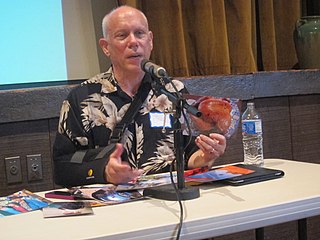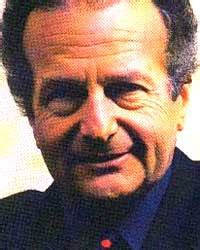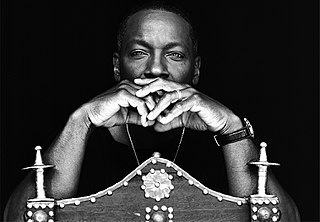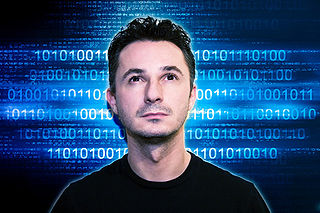Top 184 Programmers Quotes & Sayings - Page 3
Explore popular Programmers quotes.
Last updated on December 19, 2024.
We shall do a much better programming job, provided that we approach the task with a full appreciation of its tremendous difficulty, provided that we stick to modest and elegant programming languages, provided that we respect the intrinsic limitations of the human mind and approach the task as Very Humble Programmers.
Software development takes immense intellectual effort. Even the best programmers can rarely sustain that level of effort for more than a few hours a day. Beyond that, they need to rest their brains a bit, which is why they always seem to be surfing the Internet or playing games when you barge in on them.
Programmers waste enormous amounts of time thinking about, or worrying about, the speed of noncritical parts of their programs, and these attempts at efficiency actually have a strong negative impact when debugging and maintenance are considered. We should forget about small efficiencies, say about 97% of the time: premature optimization is the root of all evil. Yet we should not pass up our opportunities in that critical 3%.
On every full moon, rituals ... take place on hilltops, beaches, in open fields and in ordinary houses. Writers, teachers, nurses, computer programmers, artists, lawyers, poets, plumbers, and auto mechanics -- women and men from many backgrounds come together to celebrate the mysteries of the Triple Goddess of the Dance of Life. The religion they practice is called Witchcraft.
'On demand' is more than just a series of clicks on your still-too-complicated remote control. In fact, it is now the best way to describe what the cable industry - from programmers to content makers to distributors - imagine their world is. Services and content available to very demanding consumers, wherever, whenever, however.
You could summarize everything I did at Apple was making tools to empower creative people. 'QuickDraw' empowered all these other programmers to now be able to sling stuff on the screen. The 'Window Manager,' 'Event Manager,' and 'Menu Manager.' Those are things that I worked on that were empowering other people.
In those days [batch processing] programmers never even documented their programs, because it was assumed that nobody else would ever use them. Now, however, time-sharing had made exchanging software trivial: you just stored one copy in the public repository and therby effectively gave it to the world. Immediately people began to document their programs and to think of them as being usable by others. They started to build on each other's work.
Another effective [debugging] technique is to explain your code to someone else. This will often cause you to explain the bug to yourself. Sometimes it takes no more than a few sentences, followed by an embarrassed "Never mind, I see what's wrong. Sorry to bother you." This works remarkably well; you can even use non-programmers as listeners. One university computer center kept a teddy bear near the help desk. Students with mysterious bugs were required to explain them to the bear before they could speak to a human counselor.
By the mid-1990s the number of people with some experience of using computers was many orders of magnitude greater than in the 1960s. In the Kasparov defeat they recognized that here was a great triumph for programmers, but not one that may compete with the human intelligence that helps us to lead our lives.
It is a shame that homebrew development can't be officially sanctioned and supported, because it would be a wonderful platform for a modern generation of programmers to be able to get a real feel for low level design work, to be contrasted with the high level web and application work that so many entry level people start with.
For a long time it puzzled me how something so expensive, so leading edge, could be so useless. And then it occurred to me that a computer is a stupid machine with the ability to do incredibly smart things, while computer programmers are smart people with the ability to do incredibly stupid things. They are, in short, a perfect match.
In a weird way, riffing on genres is kind of a reaction to formula. When you watch so much of the programmers and the films that you just think you've seen before, it's kind of going back to the well in terms of trying to conjure up the spirit of what made you excited about films in the first place.
I believe C++ instills fear in programmers, fear that the interaction of some details causes unpredictable results. Its unmanageable complexity has spawned more fear-preventing tools than any other language, but the solution should have been to create and use a language that does not overload the whole goddamn human brain with irrelevant details.
A hacker is someone who enjoys playful cleverness—not necessarily with computers. The programmers in the old MIT free software community of the 60s and 70s referred to themselves as hackers. Around 1980, journalists who discovered the hacker community mistakenly took the term to mean “security breaker.”
While we may continue to use the words
smart and stupid, and while IQ tests may
persist for certain purposes, the monopoly
of those who believe in a single general
intelligence has come to an end. Brain
scientists and geneticists are documenting
the incredible differentiation of human capacities, computer programmers are creating systems that are intelligent in different ways, and educators are freshly acknowledging that their students have distinctive strengths and weaknesses.
When you choose a language, youre also choosing a community. The programmers youll be able to hire to work on a Java project wont be as smart as the ones you could get to work on a project written in Python. And the quality of your hackers probably matters more than the language you choose. Though, frankly, the fact that good hackers prefer Python to Java should tell you something about the relative merits of those languages.
The Escalation programmers come from a completely different background, and the codebase is all STL this, boost that, fill-up-the-property list, dispatch the event, and delegate that. I had been harboring some suspicions that our big codebases might benefit from the application of some more of the various “modern” C++ design patterns, despite seeing other large game codebases suffer under them. I have since recanted that suspicion.
In the '80s, society created a caricature of what a hacker or a programmer looked like: a guy wearing a hoodie, drinking energy drinks, sitting in a basement somewhere coding. Today, programmers look like the men we see in the show 'Silicon Valley' on HBO. If you look at the message girls are getting, it's saying, 'This is not for you.'
I find that creative streak I think often leads in programmers to be good predictors of where culture as a whole is going to go. And that is where I think I've tried over the years to in some ways use my customers as a filter or a predictor of where technology as a whole is going to go. Or where the world as a whole is going to go.
In their work, designers often become expert with the device they are designing. Users are often expert at the task they are trying to perform with the device. [...] Professional designers are usually aware of the pitfalls. But most design is not done by professional designers, it is done by engineers, programmers, and managers.
Autism is a big continuum, going from someone who remains nonverbal, all the way up to geniuses on Silicon Valley. And some kids are visual thinkers like me. Other kids are pattern thinkers - your mathematicians, your programmers. And there are others, they are word thinkers. Uneven skills. You need to take the thing that they're good at and you need to work on developing it.
There's a subtle reason that programmers always want to throw away the code and start over. The reason is that they think the old code is a mess. [...] The reason that they think the old code is a mess is because of a cardinal, fundamental law of programming: It's harder to read code than to write it.
[Sundance] still feels significant. I don't think you can help but come here and not feel that sense of history and its significance in influencing film. And I think it still does. Some of that is based on history, but it's also based on really incredible programmers who are showcasing such an incredible variety of cinema.





















































